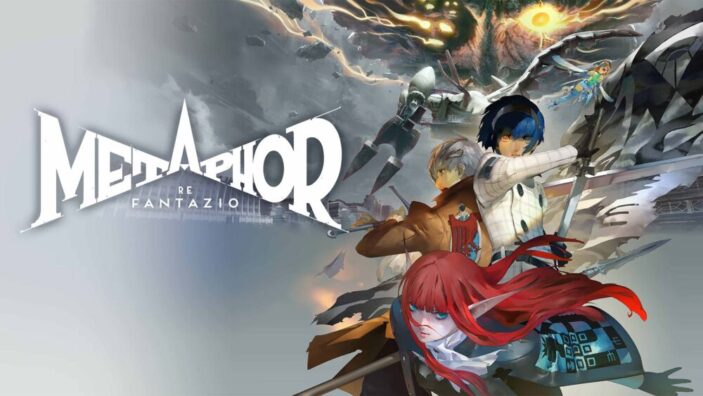
Positioned as a spiritual successor to the Persona and Shin Megami Tensei series, Metaphor: ReFantazio is the latest offering from Japanese studio Atlus, trading in school halls for castle walls. Boldly delving into heavy themes of inequality and the corrupting influence of power, Atlus has certainly crafted one of the standout RPGs of the year.
Familiar mechanics are refined to near perfection for returning fans and newcomers, while its narrative—though straightforward—is both expertly crafted and deeply satisfying. More than just a test of your RPG skills, Metaphor: ReFantazio seeks to challenge your understanding of humanity itself.
A Kingdom on the Brink
Your journey begins in Euchronia, a kingdom amid political turmoil following the assassination of its king and the mysterious coma of his son. Thrust into the chaotic aftermath, you find yourself an unlikely participant in a magical election to determine the next ruler.
This 80+ hour odyssey plunges you into a society fractured by racism, poverty, exploitation, and religious zealotry, with a dash of magic and fantasy elements. The setup is well established and takes its time to draw you in, while the world offers an ongoing wealth of storytelling and themes to be explored.
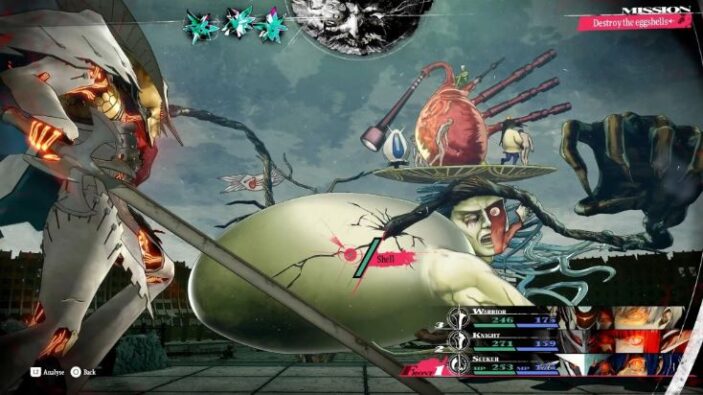
While some RPGs use their settings as backdrops, Metaphor roots its themes in every interaction and subplot. Characters embody the very systems that oppress or uplift them, and Atlus doesn’t shy away from drawing direct lines between its fictional injustices and those of the real world.
Rather than burying its ideas in subtext, Metaphor lays its intentions out in the open. This approach may often feel a bit on the nose and even break the immersion with its contemporary parallels, but it can help ground the game’s political and emotional stakes.
The Familiar, Refined
Devotees to Atlus’s back catalogue will feel pretty comfortable with Metaphor’s mechanics, while they remain accessible to newbies. The daily calendar system returns, blending time management with social and narrative progression. Each day brings critical decisions: do you spend your precious hours bonding with allies, exploring dangerous dungeons, or pursuing the main objectives that shape the story?
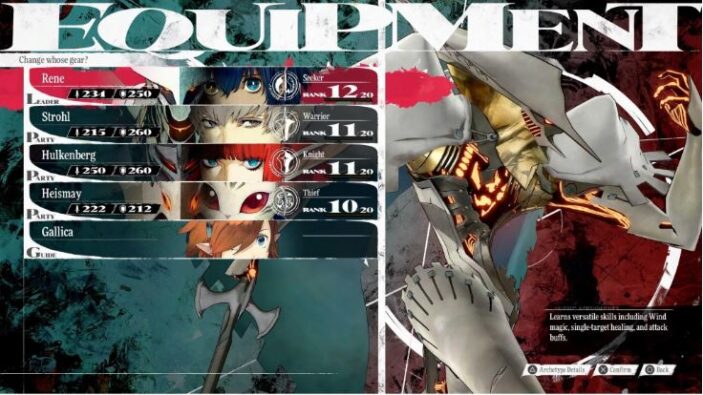
What sets Metaphor apart is its refinement of these systems. The Bond/Follower system and Royal Virtue mechanics streamline the social elements by clearly communicating progression requirements. This transparency eliminates the guesswork, making it easier to forge meaningful relationships with the cast of characters.
Side quests With Substance
Beyond the main story, Metaphor offers a variety of side quests that are far from filler. Optional dungeons, bounty hunts, and character-driven errands enrich the world while delivering satisfying challenges. Though dungeon layouts can become predictable and a bit rote, the rewards—whether gear, experience, or narrative insight—make these detours worthwhile.
The choice to embark on side quests carries weight with the calendar system too. Time spent chasing leads or exploring new areas takes away from other pursuits, reinforcing the urgency of your mission. This dynamic underscores the game’s central tension: how do you best use limited resources to achieve lasting change?
Combat With Depth and Flexibility
At the heart of Metaphor lies its combat, a turn-based system. Exploiting elemental weaknesses and leveraging extra actions remains as satisfying as ever, with a new Archetype system that shakes up the formula. With a class-based system, Archetypes allow party members to adapt their roles dynamically and chop and change between battles.
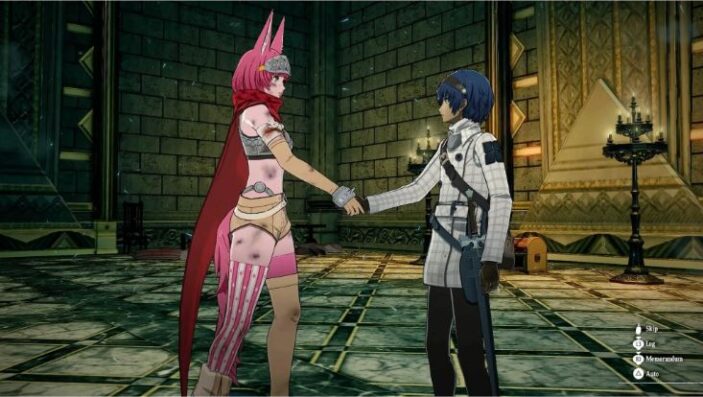
A late-game introduction of advanced Archetypes and Synthesis attacks adds another strategic layer, rewarding experimentation and the potential for devastating multi-character combos. Battles feel like intricate puzzles, and success will come more readily from experimenting and understanding your tools rather than spamming heavy attacks.
A Living, Breathing World
Visually, Metaphor is wonderful to look at. The mixture of 3d gameplay with occasional 2d animation sequences to tell its story may alienate some audiences, but I was hooked through my playtime.
It’s an initial adjustment if Western RPGs are more your flavour, but the European gothic-inspired art direction mixed with eccentric JRPG boss designs (human eggs anyone?) mixes with high fantasy landscapes that are a joy to look at. The game’s flair even carries over into its menus and user interface, meaning navigating to the setting tabs feels infused with personality.
The soundtrack, composed by Shoji Meguro, trades pop-infused tracks for orchestral and operatic arrangements that lend gravitas to each moment. Boss battles are made much more epic by the strings and add to the gravity of each fight.
A Story With Teeth
Where Metaphor truly excels is in its narrative cohesion. The thematic exploration of systemic injustice, belief systems, and collective action is timely. However, this can be a burden as it can break some immersion by mirroring modern political conversation either by accident or intent. The game benefits from a commitment to its premise and philosophy by not shying away from hard truths, and acknowledging the difficulty of enacting change.
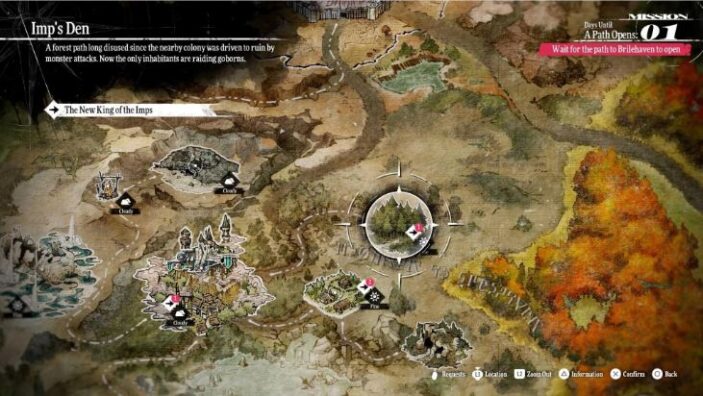
Each character also offers a unique perspective shaped by their backstory and struggles. These arcs are some of the most compelling in recent RPG memory and make delving into the lore and party characters one of the more engaging parts of the game.
Final Thoughts
Metaphor: ReFantazio refines the best elements of Atlus’s RPG legacy into a cohesive, emotionally resonant fantasy package. Its themes are clear, its gameplay systems are finely tuned, and its world bursts with style and substance. In a year brimming with standout RPGs, Metaphor establishes itself as a beacon of what the genre can achieve.
Whether you’re a veteran of Persona or a newcomer drawn by the promise of a turn-based fantasy title, this is a truly satisfying journey well worth the 80-hour trek.
![]()
![]()
![]()
![]()
![]()
FOUR AND A HALF STARS (OUT OF FIVE)
Highlights: Rich narrative themes; refined gameplay mechanics; stunning visual and audio design; engaging character arcs
Lowlights: Occasionally too on-the-nose with modern parallels; dungeon layouts can feel repetitive
Developer: Atlus
Publisher: Atus/Sega
Platforms: PlayStation 5, Xbox Series X|S, Windows PC
Available: Now
Review conducted on the PlayStation 5 with a release code provided by the publisher.
